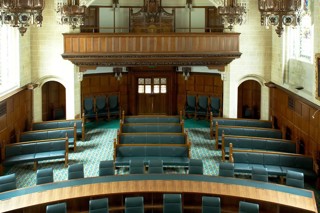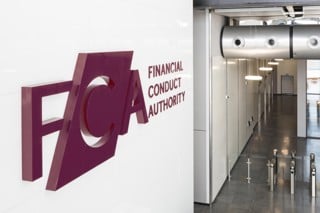The Financial Conduct Authority (FCA) has warned motor finance firms not to repossess vehicles or end contracts with customers in financial difficulty due to the coronavirus pandemic.
It wants a three-month payment freeze facility to give some breathing space to consumers who’ve suffered unexpected temporary financial stress since Covid-19 forced the UK’s lockdown.
The FCA has also told motor finance firms they must not alter PCP or PCH agreements in ways that are unfair, such as trying to recalculate PCP balloon payments to reflect likely car value rapid depreciation.
“The FCA expects firms to act fairly where terms are adjusted,” said its statement.
It has also warned that, when a customer wishes to keep their car at the end of the PCP, but there is a disparity between the balloon payment (GFV – guaranteed future value) and the vehicle’s real current value, firms should work with the customer to find “an appropriate solution” and simply refinancing the balloon payment “might not be appropriate in the circumstances”.
Other measures for consumer credit customers in difficulties include three-month payment freezes for buy-now-pay-later, rent-to-own and pawnbroking agreements.
The high cost credit sector, including payday loans, must freeze payments for one month at no additional interest where customers are struggling to repay.
Christopher Woolard, the FCA’s interim chief executive, said: “We have worked at pace to introduce temporary financial relief tailored for a range of specific credit
products.
“Many firms are already working with their customers, but these measures ensure all consumers affected by the coronavirus emergency can apply for a temporary freeze on their payments.”
The FCA said firms and consumers should consider the amount of interest on outstanding balances which may build up, and balance this against the need for immediate temporary support.
Alternative solutions
If a payment freeze isn’t in the customer’s best interests, firms should offer an alternative solution, potentially including the waiving of interest and charges or rescheduling the term of the loan, it said.
And the FCA said if a customer is unable to start making payments again at the end of a payment deferral period, they should contact their lender, and the lender should work with the customer to resolve these difficulties in advance of payments being missed.
The coronavirus crisis has left motor finance houses with their own difficulties, and the Finance and Leasing Association (FLA) has renewed its appeal for help from Government and the Bank of England after the virus’ impact prompted 1.2 million claims to its members for finance forbearance, official repayment relief.
The consumer car finance market declined 27% by volume, to 214,056, and 24% by value, to £3.75 billion in April, according to the FLA.
Pressure on the finance sector is growing and Stephen Haddrill, director general at the FLA, renewed its call to the Government and the Bank of England to take urgent action to support the non-bank lending market.
FLA members provided a little more than £138bn of new business last month.
Haddrill said: “The industry is committed to supporting its customers during these exceptional times.
"Urgent action is needed…to deliver financial support to the non-bank lending sector to ensure that we maintain a financial services sector that is diverse, innovative and competitive.”
Geraldine Kilkelly, head of research and chief economist at the FLA, said its latest research suggests the value of new business in consumer car finance will fall by 29% this year.
“The FLA urges the Government and Bank of England to open up financial support schemes to all lenders, including non-banks, so they can meet the significant current demand for forbearance and provide new lending when the economy re-opens.”
Recently the FLA’s head of motor finance, Adrian Dally, told AM that every effort should be made to keep motorists “in their cars” as coronavirus inhibits some consumers’ ability to make repayments.
Dally said there’s a marked difference between a payment holiday on a 25-year mortgages on properties which typically go up in value and on a three-year finance agreement for a depreciating vehicle, but the sector must do what it could to help consumers.
Dally said: “How we support our customers now is really critical… in a nutshell, in the motor finance sector, keeping customers in their cars is what’s needed.”
He suggested that the support had to be there to maintain consumers’ faith in their finance provider and the product they have chosen.
“The risk of people losing their cars is not a new one but the context in which this is happening now is clearly very different,” he said.
“The people who have been highly credit worthy until now will be highly credit worthy in the future.”
Paul Burgess, chief executive of Startline Motor Finance, said: “Our view is that the public in general will remember the people and the businesses that treated them fairly and with respect during the crisis – it is a watershed moment for the country – and motor finance should do the right thing.”
Mark Turner, managing director within the Duff & Phelps compliance and regulatory consulting practice, said the payment holidays will come as a great relief as many customers are facing an unexpected change in circumstances.
“However, shifting debt from consumer to businesses has the ability to create further pressure in these volatile times.
"As such, appropriate Government support might be needed to protect consumers and businesses, to prevent creating a knock-on effect for the automotive industry.
“It is important to consider that a payment freeze might not always be the best option for everyone.
"Often, it might be better to pay down certain debt, for example, higher cost debt, to avoid additional interest accruing which will, ultimately, have to be repaid.
“While three-month payment holidays will be welcomed by many individuals in difficulty, there is a real risk that some customers who could afford to continue payments might see the saving as an opportunity to increase their spending, and find themselves in greater financial difficulty later down the line.
“There is no ‘one size fits all’ approach and firms need to be mindful in granting payment freezes and will need to take steps to assess each individual case on its own merits.”
James Fairclough, chief executive of AA Cars, said the FCA measures ensure every customer will be treated the same, whoever their lender is, and whatever type of finance plan they are on.
This article was first published in AM magazine on May 22.





















Login to comment
Comments
No comments have been made yet.